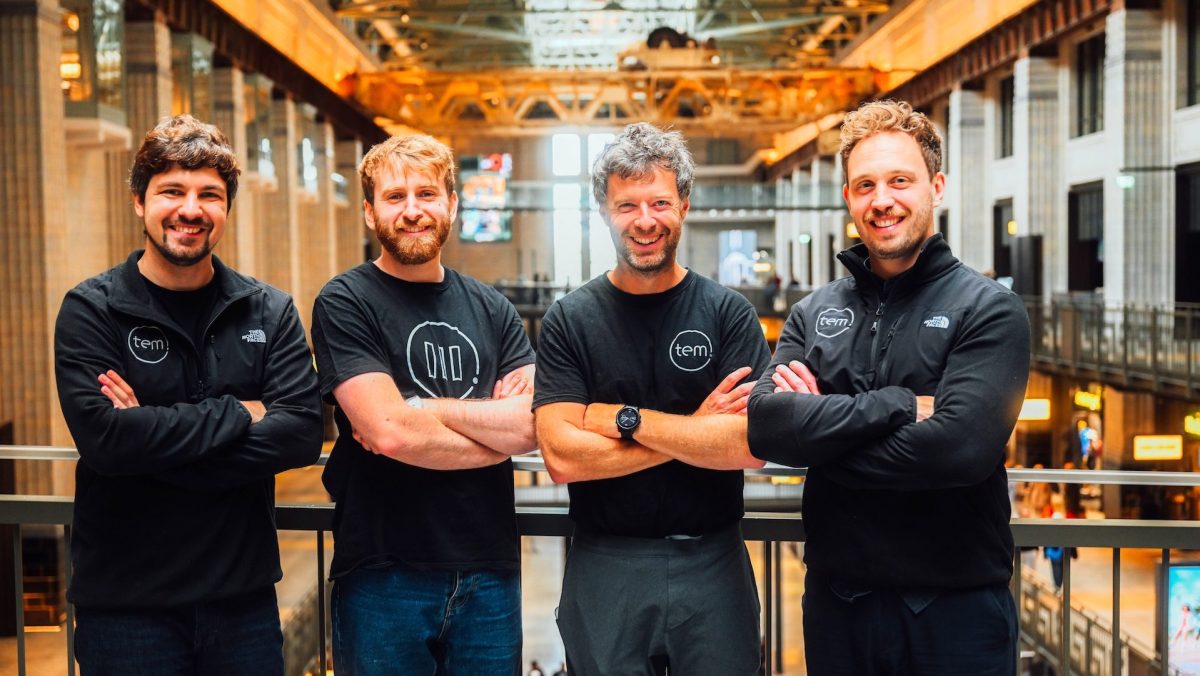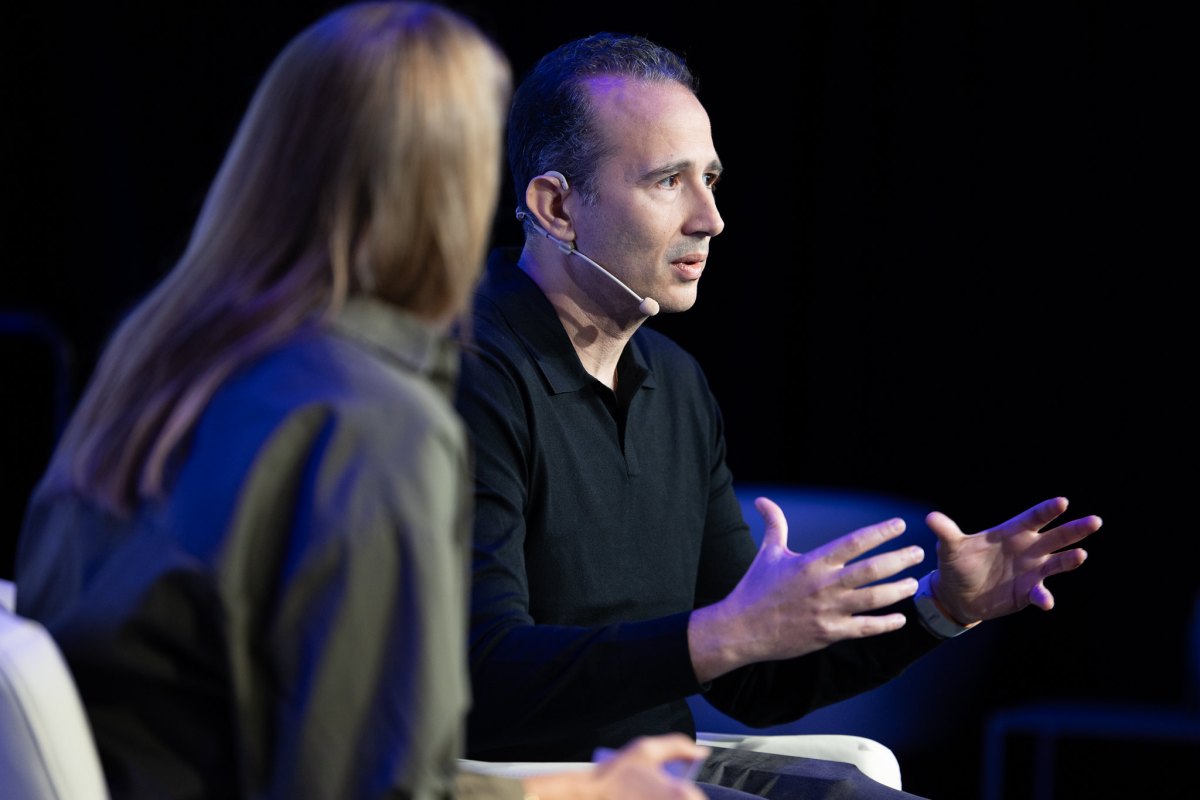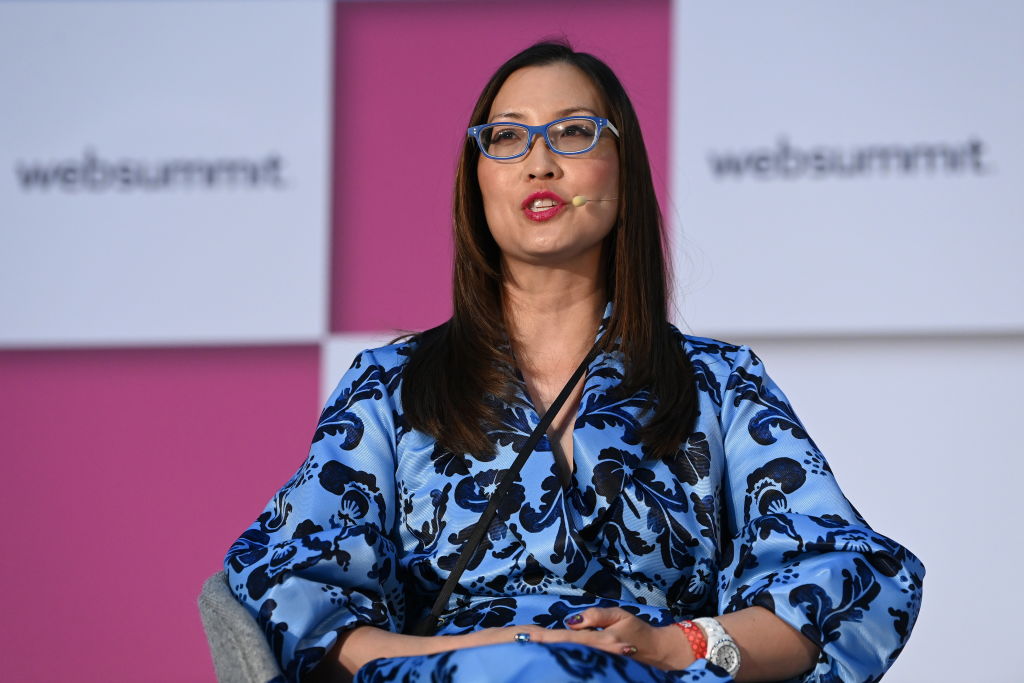A U.K. startup wants to do for utilities what neobanks have been doing for the financial sector for more than a decade: disrupt an age-old industry using technology, streamline it and cut out the middlemen.
London-based Tem has built a marketplace and platform to connect businesses directly to renewable energy sources, and it is working with an existing Ofgem-regulated utility partner instead of applying for a supply license itself. Ultimately, Tem is all about enabling businesses to bypass so-called “big energy” and their big prices while making it easier to meet climate targets.
“We like to think of ourselves as the U.K.’s very first ‘neo-utility’,” Tem’s co-founder and CEO, Joe McDonald, told TechCrunch over email.
Founded in 2021, Tem on Wednesday said it has raised £10.5 million ($13.7 million) in a Series A round led by European venture capital firm Atomico, which closed two funds totaling $1.24 billion earlier this week. The investment comes as nations in Europe and beyond strive to reduce their carbon output and become “climate-neutral” by 2050. The U.K., specifically, is committed to reducing greenhouse gas emissions by “at least 100% of 1990 levels” within the next 25 years.
At the same time, rising oil and gas prices have underscored the need to find an alternative solution to fossil fuels.
Aside from McDonald, Tem’s founding team includes chief technology officer Bartlomiej Szostek, chief commercial officer Jason Stocks, and Ross McKay. All three met at a startup called Limejump that used big data to disrupt the U.K. energy market, and that was where the seed for Tem was sown.
“I’ve worked for over 12 years in the energy industry, and during this time, the winners and the losers in the energy market have largely remained the same,” McDonald said. “Smaller businesses buying from big energy have always been hit with high fees, volatility, and no guarantee of true renewable energy. They’re stuck in a system that doesn’t put people first. The lack of affordable clean energy is one of the biggest challenges for both businesses and the planet. We wanted to ensure any business can access the renewable energy they need forever.”
Renewed energy
Tem’s platform matches businesses’ energy requirements with suitable renewable generators using an “AI matching algorithm” that forecasts energy supply and demand across buyers and sellers in the startup’s network. The company provides its own pricing and billing system, customer service, as well as an interface through which customers can select their renewable energy priorities, preferred contract length, and see data related to power consumption and where their energy originates.
Tem claims to have some 200 customers today, including Silverstone, home to the British Grand Prix.

The startup channels a network of more than 50 renewable generators, which may include anything from a solar or wind farm to anaerobic digestion plants such as those provided by U.K. biogas generator, Biodynamic.
While companies can technically transact directly with many of these renewable energy sources, this typically involves long-term power purchase agreements (PPAs) and complex, costly administration, which only really works for the biggest businesses.
“In such a complex system, these [power purchase] agreements can be hundreds of pages long, take months to negotiate, and cost hundreds of thousands of pounds,” McDonald said. “What’s more, because the customer needs to be able to buy all of the energy that a generator produces, it only works for really large businesses with huge amounts of energy usage. This is fine if you’re a megacorporation like Google or Amazon — but what about the other 99% of businesses?
Tem charges for a “variable” percentage of every transaction, but it declined to disclose what determines that percentage. McDonald did note, though, that energy prices are usually at least 10% cheaper than what they would be on the wholesale market, and can be as much as 25% lower.
Tem could apply for its own supply license and become a fully independent supplier — as some neobanks have done in the banking realm — but McDonald says that partnering with a third-party license holder like P3P Partners lets the startup focus on its raison d’être.
“We could [apply for a license], but our focus is on the tech and transforming the buying and selling experience, not on being a licensed utility,” he said. “We believe that for our model to have maximum impact, we need to stay above individual market integration.”
The state of play
Aside from big energy and the incumbent wholesale market, a number of younger companies have emerged to tackle this very problem. In Germany, we have the likes of Trawa, which recently closed a €10 million round of funding, while the U.K. has companies like Al Gore-backed Octopus Energy, which snapped up failed renewable energy rival Bulb back in 2022 — that failure was mostly due to soaring wholesale prices.
Tem says this is one of the ways it differs from its competition. While Bulb sold itself on the premise that it sourced energy from renewable or offset sources, it actually did that via the traditional utility markets.
“The energy crisis in recent years has also seen several companies go bust, creating brand trust issues related to new startups in the energy space,” McDonald said. “However, the reason so many new suppliers fail is that they operate on a traditional utility model in a wholesale market that exposes them to huge volatility and high transaction costs. We, on the other hand, mitigate these risks with our carefully balanced, direct business-to-generator matching engine.”
Aside from lead investor Atomico, Tem’s Series A round saw participation from AlbionVC, Revent, and angel backers including Holly and Sam Branson, and Wise executives Harsh Sinha and Nilan Peiris. Tem has raised £13 million ($17 million) since inception.
The company currently operates only in the U.K., but it is eyeing international expansion in the coming years — the fresh cash will likely help with that plan.
“We will likely focus on Europe first, especially markets with aggressive renewable targets like Germany, the Nordics, and later the U.S.,” McDonald said.




